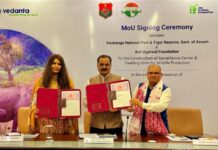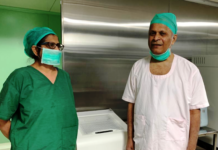Hyderabad, July 30, 2016: Malawi has an agrarian economy that is highly dependent on quality certified seed for agricultural production, apart from other essential inputs for improved productivity and yield. An average Malawian farmer has a very small land holding and is also constrained in terms of financial resources that to a large extent limits adoption of seed from corporations.
Currently, a large section of Malawian farmers use traditional varieties and practices that entail the use of seed that has been preserved from the previous cropping season, which does result in decreased yields that directly affects crop productivity. Globally, in agriculturally progressive and productive countries, private sector is one of the biggest supplier of hybrid seed to farmers.
The productivity from this seed is much higher considering that it is certified for quality, treated for disease resistance and have traits or genetic characteristics that improve their input use efficiency and provide them tolerance to detrimental environmental factors. The private seed industry in Malawi is still in its elementary stage wherein much of the hybrid seed is traded, their reach to farmers is limited and lack facilities (cash vs credit) that can aid farmers to adopt better seeds.
The Malawian seed industry in order to burgeon into a flourishing sector needs to adopt research, innovation, marketing and sound enterprise management practices that will enable it to complement the public sector initiatives of the country and provide quality cropping material to the farmers helping in creating food sufficiency in Malawi. The Agricultural Innovation Partnership (AIP) project in Malawi, funded by USAID and implemented by Cornell University (USA) and Sathguru Management Consultants (India) in collaboration with LUANAR, have made considerable improvements by creating a model seed village which provides quality certified varietal seed to the farmers. However, to accomplish its goal in developing a robust seed system in Malawi, the project is conducting a custom seed program that is specially designed to improve the Malawian seed sector and is aimed for the stakeholders from across the seed value chain in the country.
The program specifically aims to create linkages, explore transfer of technology and partnerships duly leveraging the advantages from India. The program will focus on:
• Enhancing the ability of the participants to recognize emerging issues and develop strategic solutions to augment business through deeper understanding of research management, technology access through licensing, regulatory compliance, market access factors and business restructuring.
• Exploring the concepts and tools of holistic seed enterprise management, seed marketing and implement marketing strategies for the success of their business markets.
• Intricacies of certified seed production, seed processing and seed treatment.
• Developing essential skills in the areas of Sales, Distribution and Inventory Management.
The program is being held Hyderabad, India with speakers from renowned multinational and domestic Indian seed companies with more than 20 years of experience in seed enterprise management as well as academicians from Indian State Agricultural Universities and Cornell University (USA). Field visits to private Indian seed corporations and research institute are also be organized for practical and visual experience. A networking session with a CEO panel is being held on the concluding day (29th July, 2016) of the customized program for the participants to interact with Indian private seed sector to explore new opportunities for Malawian seed sector development. The participants of this program are senior managers from the Malawian private seed sector, Regulators from central government, Faculty and Researchers from agricultural universities.
For Further Details:
Aadarsa Pidikiti, Concept PR, 9985856770, aadarsa@conceptpr.com
Corporate Comm India (CCI Newswire)



























